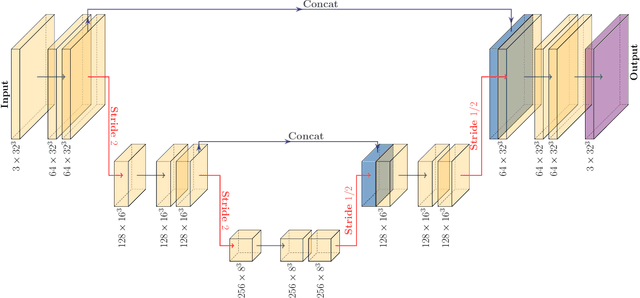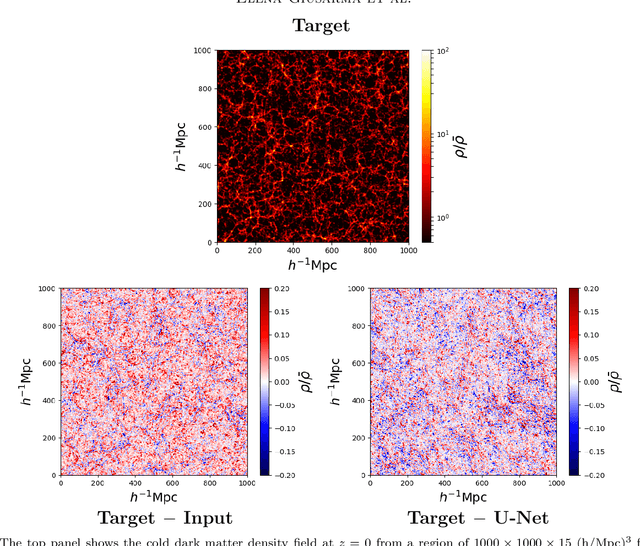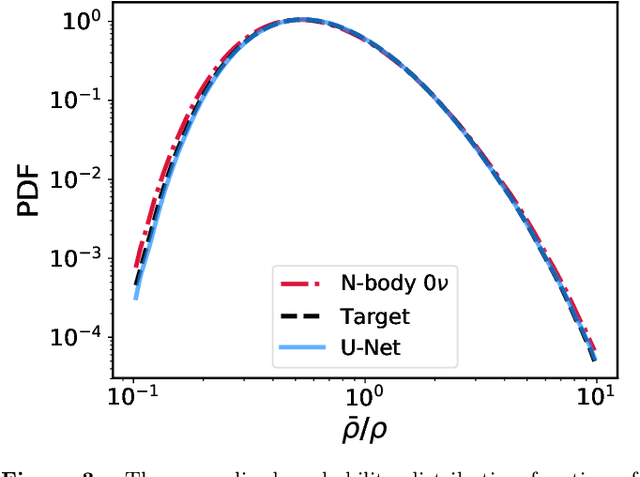Learning neutrino effects in Cosmology with Convolutional Neural Networks
Paper and Code
Oct 09, 2019



Measuring the sum of the three active neutrino masses, $M_\nu$, is one of the most important challenges in modern cosmology. Massive neutrinos imprint characteristic signatures on several cosmological observables in particular on the large-scale structure of the Universe. In order to maximize the information that can be retrieved from galaxy surveys, accurate theoretical predictions in the non-linear regime are needed. Currently, one way to achieve those predictions is by running cosmological numerical simulations. Unfortunately, producing those simulations requires high computational resources -- seven hundred CPU hours for each neutrino mass case. In this work, we propose a new method, based on a deep learning network (U-Net), to quickly generate simulations with massive neutrinos from standard $\Lambda$CDM simulations without neutrinos. We computed multiple relevant statistical measures of deep-learning generated simulations, and conclude that our method accurately reproduces the 3-dimensional spatial distribution of matter down to non-linear scales: $k < 0.7$ h/Mpc. Finally, our method allows us to generate massive neutrino simulations 10,000 times faster than the traditional methods.
 Add to Chrome
Add to Chrome Add to Firefox
Add to Firefox Add to Edge
Add to Edge